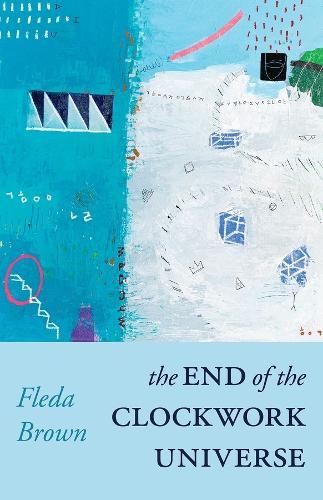Overview
A luminous new perspective on aging, science, and the tender strangeness of being alive. What does it mean to exist in a universe that refuses to stay still? In The End of the Clockwork Universe, Fleda Brown weaves together the vastness of cosmic discovery with the intimate textures of daily life. Ranging from quarks to catalytic converters, snapping turtles to black holes, these poems trace the mysteries of time and perception, offering a voice both unsentimental and deeply compassionate. With wry humor and unending curiosity, Brown walks the fine line between knowing and not knowing, between order and entropy. Her poems wander through scientific revelation and personal reflection and capture the quiet astonishment of existence. The End of the Clockwork Universe does not seek to solve life's uncertainties, but sings to them, leaving behind echoes of resilience and the sheer joy of paying attention.
Full Product Details
Author: Fleda Brown
Publisher: Carnegie-Mellon University Press
Imprint: Carnegie-Mellon University Press
Dimensions:
Width: 14.00cm
, Height: 1.00cm
, Length: 21.60cm
Weight: 0.141kg
ISBN: 9780887487149
ISBN 10: 0887487149
Pages: 96
Publication Date: 07 October 2025
Audience:
General/trade
,
General
Format: Paperback
Publisher's Status: Active
Availability: In Print

This item will be ordered in for you from one of our suppliers. Upon receipt, we will promptly dispatch it out to you. For in store availability, please contact us.
Reviews
""In her essential new collection, The End of the Clockwork Universe, Fleda Brown echoes A. R. Ammons’s statement that 'a poem is a walk,' not only in her sequence of ten 'Walk' poems, but in all the poems, which move with a wandering gait and sensibility, in which 'every step is fearful / but so tender, like walking barefoot on rocks.' The tenderness is distinctly unsentimental, as it leads to reportage from the concrete wisdom of the senses. We associate the walk-poem with the natural world, and Brown is brilliantly adept at witnessing it, with humor and heartache, from the sweet pea to the snapping turtle, spring grasses to black holes, extending to us the awareness that much of what we tell ourselves about the world is projection, which comes 'bouncing back at us / like a mirror, while the tree or whatever goes on being / itself.' Brown is buoyed by the fact that things themselves go on without us and without our poems. 'You can only walk so long / before you start trying to fix the world, or yourself, / or you start thinking of the walk as medicinal, / or a quest, Dante-esque.' She comes to something else, here, a sort of empathic neutrality, even with a pile of dead flies, even as she contends with breast cancer. It is an awareness of delicate immensity and hopeless generosity. 'You’re not so much giving / a poem but singing like the cricket,' she writes, 'not because you’re headed hopelessly / downriver, but who’s left to sing, if not you?'” * Diane Seuss, author of Modern Poetry and frank: sonnets (winner of the 2022 Pulitzer Prize and National Book Critics Circle Award for Poetry) * ""How to begin praising the poems of this astonishing collection? With their capacious embrace of so much of the universe (catalytic converter theft, Halley’s comet, Oompa-Loompas, Finnish movies, quark physics . . .) that they finally become the universe? With their wry and courageous dead-on look at aging and at the body’s betrayals? With their introduction to 'Fleda-speak,' where the language you and I commonly use takes jaw-dropping turns like the staircase corners in Escher’s art? Yes, how? Well, I can answer that: Begin your praise with the book’s first poem, then every poem thereafter."" * —Albert Goldbarth, two-time winner of the National Book Critic’s Award in poetry * ""Vitality and entropy, knowledge and mystery—The End of the Clockwork Universe delves into the biggest of things. And yet Fleda Brown’s inquiries are always grounded in what’s creatural and close, in dailiness steeped in illumination. Often arriving at the truth that 'nothing can be absolutely solved,' Brown’s poems nonetheless keep looking, asking, and wondering. In a body of work that is now magisterial in its accomplishment, Brown has repeatedly shown that attention is at the heart of poetry. Attention to the real, to language, and to the imagination that transits between them. 'Instead of / answers,' one poem rightly claims, 'some sort of singing, / Kisses into the void.'” * Rick Barot, author of Moving the Bones *
Author Information
Fleda Brown is a poet and author. Her work has appeared in The Best American Poetry and has won a Pushcart Prize among many other accolades. Her recent memoir is Mortality, with Friends. Her earlier poems can be found in The Woods Are on Fire: New & Selected Poems.



